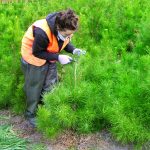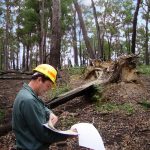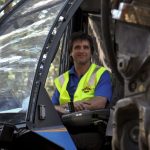Thanks to everyone involved in the projects below, updated qualifications and skills standards have now been published to support career pathways, safety practices, and high level forestry skills.
The final draft qualifications, skill sets and units were endorsed by the Australian Industry and Skills Committee (AISC) and State and Territory Ministers. They are now published on the National Training Register (training.gov.au).
Entry Level Forestry Skills Project
Attracting and training new entrants is a focus for the forestry industry as it works to keep up with demand for forest products and commitments to plant more trees.
As a result of industry feedback throughout this project, updates have been made to entry level qualifications, skill sets and units so that they are more efficient and accessible to deliver and provide visible career pathways for school students, new entrants and existing workers.
For more information, visit the project page.

These updated qualifications, skill sets and units of competency allow myself and my colleagues to be aware of any updated skills needs that apply to our industry, and then allows us to pass on this information to learners, so they have knowledge of any new requirements they may need to meet future industry demands.
Keith Eastley, TasTAFE
High-Level Forestry Skills Project
Strong skills in management, supervision and planning are essential to growing sustainable forests for timber, wood and fibre products.
Thanks to the contributions of everyone involved in this project, the high level skills required to support work with new technology and data have been captured in updated qualifications and skills standards. These updated documents describe the skills required to optimise forest management practices, improve forest health and wood flow outcomes, and to promote safe work practices.
For more information, visit the project page.

Both qualifications are now reflective of industry developments and relevant to our industry as a stepping stone to a fulfilling forestry career.
Linda Cotterill, Forestry Corporation of NSW
Remote Forestry Operations Project
Forest workers operating in small teams and remote locations require strong safety mindsets to promote their own and their team’s physical and mental health.
Thanks to everyone who contributed to this project, two units have been developed to describe the skills and knowledge required to apply situational awareness and a safety mindset while working in team situations or alone in remote areas.
For more information, visit the project page.

